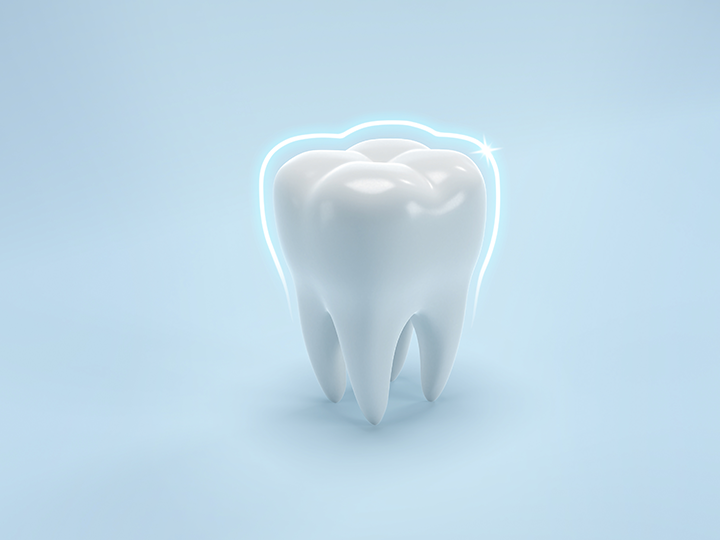
What causes teeth grinding? How is teeth grinding?
The stresses we experience cause us to grind our teeth at night and during sleep. Teeth grinding, medically referred to as Bruxism, mostly occurs during sleep. So, why do teeth clenched while sleeping? How is teeth grinding treated?
Do you have a headache and tired facial muscles when you wake up, or have jaw pain throughout the day? You may be unintentionally grinding your teeth at night. Teeth grinding, also known as bruxism, is the involuntary clenching of the teeth and is mostly seen during sleep. It is quite common for people to experience this while sleeping. People who are with patients more often notice this and may be uncomfortable with this situation. Dentist Berke, stated that stopping teeth grinding will protect the teeth and help people smile with confidence, and underlines that this problem should be followed up and focused on sensitively so that it does not result in deterioration in quality of life.
What are the causes of teeth grinding?
Dentist Berke, stated that there may be more than one reason for the problem of teeth grinding during sleep, and said, “Especially stress factors, adverse life conditions, alcohol and caffeine consumption, drug use, sleep apnea and snoring are common causes. Unfortunately, material and spiritual problems, psychological situations and problems in daily life cause stress. Studies show that the most important cause of teeth grinding is stress.” He gave information about the symptoms and treatment methods of these problems.
What are the symptoms of teeth grinding?
According to the Bruxism Association, the most common symptom of teeth grinding is headache and temporomandibular joint (TMJ) disorder, and people who grind their teeth are three times more likely to experience headaches than other people. These symptoms are often accompanied by various oral manifestations such as abnormal tooth wear, tooth fractures, inflammation of the teeth and gums, and gingival recession. Dentist Berke said, "We ask the following questions during the examination and we can detect the symptoms of teeth grinding according to the answers we receive."
- Has anyone in your family ever told you that you grind your teeth while you sleep?
- Do you feel pain in your shoulder and neck area?
- Do sounds come from the jaw joint areas?
- When you wake up from your sleep, do you feel pain or tiredness in your jaw joint, facial muscles, ears?
- Do you have sensitivity in your teeth?
How to prevent teeth grinding?
Stating that the problem of clenching can be prevented by various methods that "change from person to person", Dentist Berke shared the following suggestions and tips depending on the severity of the problem in order to end or reduce the bruxism experienced by people.
Reduce stress: Try these tricks to reduce stress and strain on your teeth.
Think positive: Let go of negative thoughts and practice actively. Take five minutes before going to bed to write down your feelings and thoughts in a notebook to relieve the worries in your life. This practice can help you get rid of negative thoughts that can trigger teeth clenching at night.
Stay away from electronics before sleep: We frequently observe the problem of teeth grinding as a result of psychological conditions such as emotional depression, life conditions, stress and anger experienced by the patient. For this reason, stay away from factors that trigger your nervous system before sleep. Create an environment that will calm your mind and body before sleep.
Practice mindfulness: Before you fall asleep, notice the tension in your jaw. If you have trouble identifying the source of the resistance, actively relax and relax all the muscles in your jaw and face one at a time. If you wake up at night, repeat this relaxation method before falling asleep again.
Do yoga or pilates regularly: Remember that the body is one. An imbalance in the hip joint, imbalances in the right and left halves of our body can also create a problem that will reflect on our jaw joint. Methods and sports that correct posture disorders and align the body can be very helpful in solving the problem of clenching and grinding.
Do breathing exercises and meditation regularly: Regular breathing exercises and meditation can contribute positively to our mental and body health by regulating our brain waves and can produce miraculous results. A nervous system that feels safe and comfortable is a prime condition for health. The easiest way to achieve this can be breathing exercises and meditation.
Wear a mouth guard (night plate): You can use a night plate made specifically for your mouth by your dentist. Your dentist will decide which option is best for you.
Correcting misaligned teeth: For some people who grind their teeth, this may be due to a problem with the alignment of the teeth. Your dentist will correct the alignment with various treatments to correct the alignment and occlusion of your teeth.
Avoid caffeine and alcohol: Consuming stimulants such as caffeine, coffee, tea, soda or chocolate after dinner can affect your sleep quality. Therefore, it can cause you to grind your teeth while sleeping. It is recommended to avoid such stimulants in order to rest your body and mind and not to grind your teeth. Alcohol is already known to adversely affect sleep quality, so it's best to avoid drinking alcohol at night if you're grinding your teeth at night.
Botox application: The problem of teeth grinding can cause permanent problems in the surrounding tissues and teeth as a result of stretching the muscles and nerves in the area. Thanks to botox, which is one of the most used methods in the treatment of teeth grinding, joint dental health can be protected by relaxing the muscles in the area. With this procedure, the contractions in the area are corrected temporarily or permanently. It is important that botox application for teeth clenching and grinding should be done by a specialist doctor in the dental clinic.
